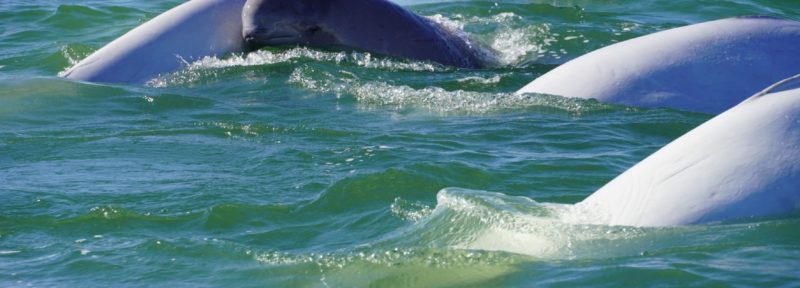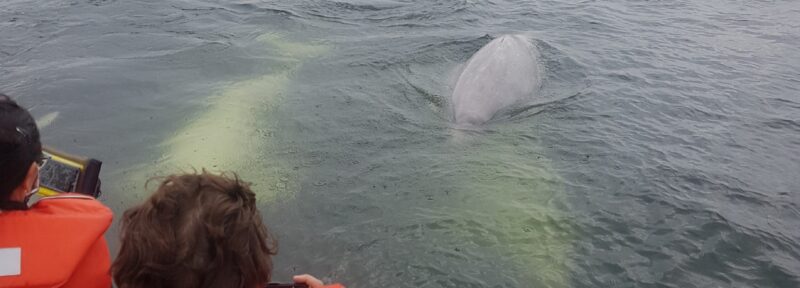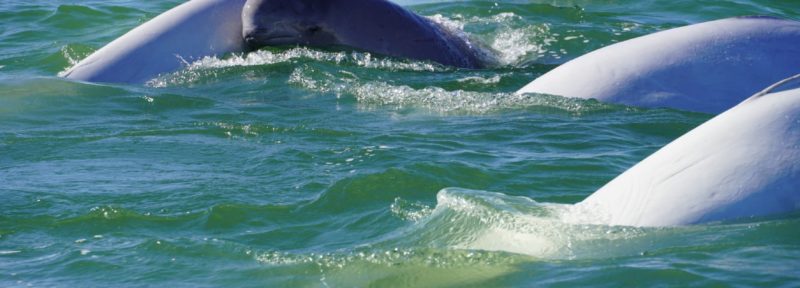Where Does Canada Stand on Deep-Sea Mining?
The gummy squirrel (a species of sea cucumber) was one of the deep-sea creatures featured on this week's episode of Last Week Tonight with John Oliver.
Credit: NOAA Office of Ocean Exploration
“It’s beyond time that we stop treating the deep ocean as something to exploit, and start treating it for what it really is: a mind-blowingly vast, virtually unknown world within our world,” John Oliver concluded in his most recent Last Week Tonight segment on deep-sea mining.
We agree—although not with his opinion on the attractiveness of the unfairly maligned barreleye fish, which is already having a hard time (its scientific name means “behind anus”). In fact, Oceans North is an official observer at the International Seabed Authority (ISA), and we’ve been advocating for a moratorium on deep-sea mining both nationally and internationally for several years.
If you watched the show from Canada, you might be wondering: where does my country stand on all of this? (On deep-sea mining, not the barreleye.)
When it comes to Canada, we have some good news and some bad news. Last July, Canada announced their support for a moratorium on deep-sea mining. Since then, global interest in deep sea mining has continued to grow and the debate over whether or not to proceed with the industry has intensified. Currently, 27 countries, over 800 scientists, a business coalition, and diverse civil society stakeholders oppose the commencement of deep sea mining. The UN High Commissioner for Human Rights—along with multiple Human Rights Special rapporteurs—also oppose the industry.
In the face of this opposition, the ISA is caught in a debate between mining and protecting the marine environment, while companies threaten to apply for mining licenses in the absence of rules and regulations that would govern the industry.
Where does Canada stand right now? In its public position, Canada has committed to “ensur(ing) the prevention of damage from seabed mining activities to the marine environment”. In practice, however, Canada has been failing to meet its mandate and defend the environment, stakeholder participation, and good governance at the ISA. In May, 30 national and international organizations penned a letter to Ministers Joly, Lebouthilier, Wilkinson, and Guilbeault calling on Canada to defend human rights, transparency, and the environment at the ISA.
The next ISA meeting is in July, and it remains to be seen if Canada will increase its ambition and leadership. If it does not, Canada risks not only failing to help prevent deep-sea mining, but actually hindering efforts by other countries to protect the deep sea by implementing preventative measures within the ISA and other international institutions.
But if you’re in Canada and you care about the ocean, there is something you can do. Right now, we’re pushing the government to ratify the High Seas Treaty. While it doesn’t cover the seabed, this global agreement will go a long way towards protecting the rest of the waters that make up nearly half the planet. You can sign the petition here. If you’re on X, you can also send a message to the ministers whose departments are responsible for Canada’s position on deep-sea mining.
And in the spirit of the barreleye fish, keep your enormous, ghoulish eyes open for more news on what you can do to help keep the deep sea weird.
Nicole Zanesco is Oceans North’s international policy advisor.





